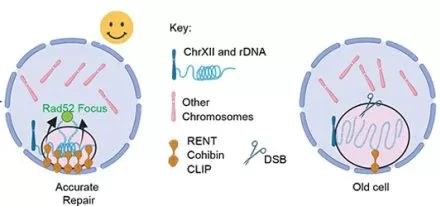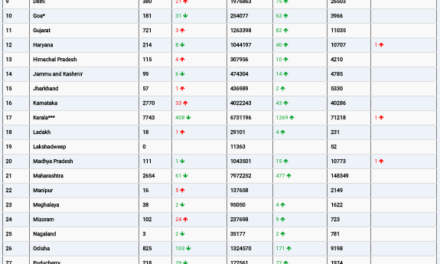A recent study published in the journal Sexually Transmitted Infections has unveiled alarming new data about the global spread of herpes simplex virus (HSV), underscoring the urgent need for effective vaccines to control this widespread and costly infection. According to the study, more than 200 million individuals aged 15–49 likely experienced at least one symptomatic outbreak of genital herpes in 2020, highlighting the significant health and financial burden of the virus.
Global Epidemic
The research reveals that nearly one in five people under the age of 50 worldwide, or about 846 million individuals, are living with genital herpes. The findings, based on extensive mathematical modeling and data from recent systematic reviews, estimate that in 2020 alone, over 42 million new infections occurred globally among individuals aged 15-49. Of these, 26 million were new cases of HSV-2, the strain most commonly responsible for genital herpes outbreaks, while 17 million new cases were attributed to genital HSV-1.
With approximately 376 million individuals living with genital HSV-1 infection and 520 million affected by HSV-2 globally, the data paints a clear picture of the virus’s widespread prevalence. It is estimated that two-thirds of the global population under 50—nearly 4 billion people—were infected with HSV-1, primarily through oral transmission, as of 2020.
The Urgent Need for Vaccines
The study’s authors emphasize that while current treatments for herpes can reduce symptoms, they are only modestly effective at the population level. These treatments fail to prevent the spread of the virus or eliminate it, leaving millions of people vulnerable to recurrent outbreaks and further transmission.
Dr. Katharine J. Looker, one of the study’s authors, points out the economic and social consequences of the virus, particularly its impact on sexual, reproductive, and mental health. The stigma associated with herpes infection often leads to emotional distress and social isolation for those affected, further exacerbating its societal burden. Moreover, HSV infections increase the risk of HIV transmission, compounding the global health challenge.
Despite the prevalence and impact of the virus, the researchers note a concerning lack of specific prevention and control programs, even in resource-rich countries. The study underscores the need for the development of both prophylactic (preventative) and therapeutic vaccines as a strategic approach to curb the spread of HSV and reduce the associated health and economic burdens.
A Call for Action
Given the high prevalence of HSV infections and their far-reaching consequences, experts argue that developing vaccines is now a public health priority. The researchers stress that HSV vaccines could significantly lower transmission rates, reduce the incidence of painful outbreaks, and mitigate the broader social and economic costs of the virus. However, despite ongoing efforts, vaccines remain unavailable to the general public.
The study serves as a critical reminder that herpes simplex virus infections are widespread across all regions, affecting millions of individuals, often without adequate intervention. The authors call for increased global attention to HSV and the urgent need for scientific and public health efforts to address this pressing issue.
Reference:
Harouche, M., AlMukdad, S., Alareeki, A., Osman, A.M.M., Gottlieb, S., Rowley, J., Abu-Raddad, L.J., & Looker, K.J. (2024). Estimated global and regional incidence and prevalence of herpes simplex virus infections and genital ulcer disease in 2020: mathematical modelling analyses. Sexually Transmitted Infections, 10 December 2024. DOI: 10.1136/sextrans-2024-056307.












